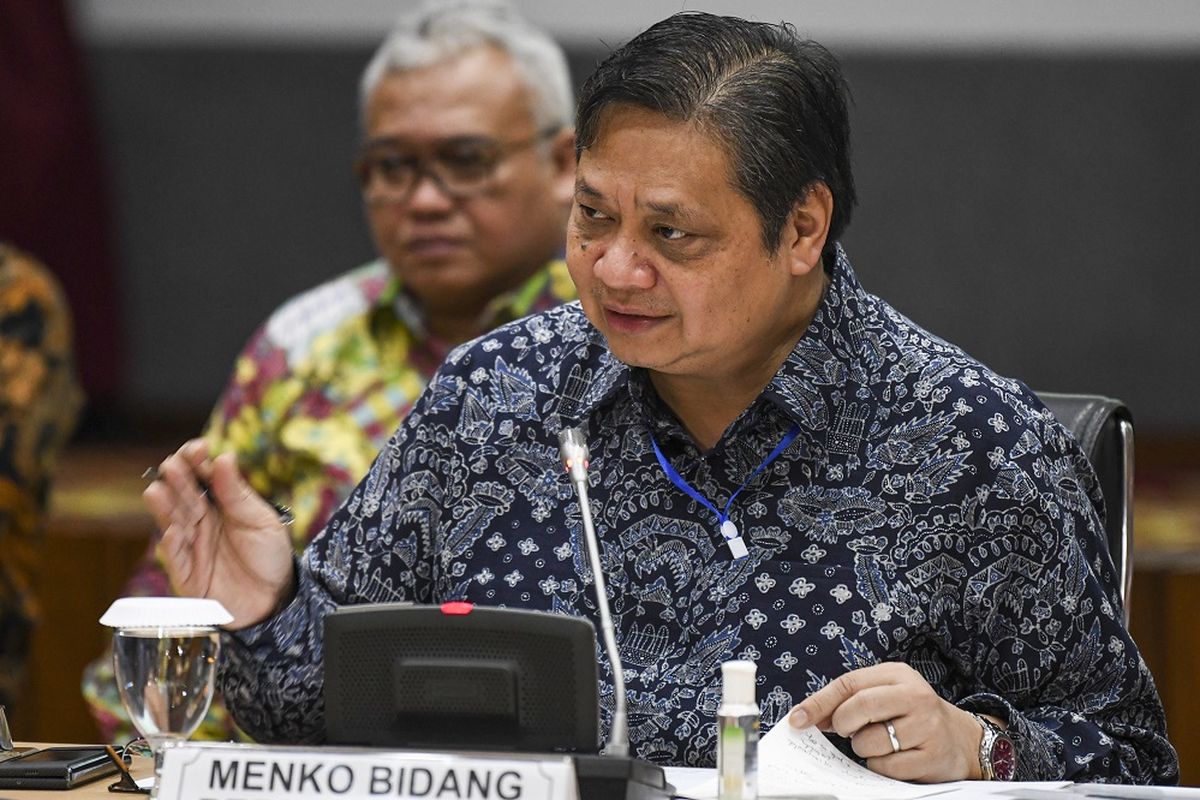Stimulus Package to Jolt Indonesia’s Economy in Q3: Senior Minister Airlangga Hartarto

JAKARTA, KOMPAS.com – Indonesia’s Coordinating Economic Minister Airlangga Hartarto has expressed optimism for a faster recovery in the third quarter due to the stimulus package the government put together to provide a jolt to an economy reeling from the Covid-19 pandemic.
To accelerate domestic economic recovery, Airlangga said the government has formulated three programs comprising national economic recovery, exit strategy to reopening the economy gradually toward new normal, as well as researching and transforming the country’s economy.
Under the national economic recovery, the microcredit program (KUR) has begun to show some results, the minister said in a statement received by Kompas.com on Saturday, July 4. “Until May 31, 2020, there were 13 creditors who had implemented the KUR policy [restructuring policy] on the recipients.”
Also read: Luhut Panjaitan: Indonesian SMEs are the Backbone of National Economy
In detail, he said, additional KUR interest subsidies have been distributed to more than 1.4 million debtors with the ceiling for KUR at 46.1 trillion rupiahs ($3.1 billion).
The deferment of principal installments for a maximum of six months has been given to 1.3 million debtors with the ceiling for KUR at 40.7 trillion rupiahs.
Finally, an extension of the credit period has been done to 1.3 million debtors with the ceiling for KUR at 39.9 trillion rupiahs, he added.
Under the exit strategy program, Airlangga said, there are several considerations, including the need to succeed in the economic recovery and tackling the coronavirus. The latter includes prevention of the spread of the virus through an expansion of treatment and testing capacity, as well as inventing drugs and the Covid-19 vaccine.
Regarding the research and strategy, the senior minister said that the Covid-19 pandemic has given an added impetus to push economic transformation by using information technology and providing license, simplifying bureaucracy, and digital reforms.
“To accelerate economic recovery, there is a need for post-pandemic digital transformation, continuing infrastructure development (labor intensive), and integration of urban development spatial planning with national policies, as well as tax incentives and structural transformation,” he said.
(Writer: Yohana Artha Uly | Editor : Bambang P. Jatmiko)
Simak breaking news dan berita pilihan kami langsung di ponselmu. Pilih saluran andalanmu akses berita Kompas.com WhatsApp Channel : https://www.whatsapp.com/channel/0029VaFPbedBPzjZrk13HO3D. Pastikan kamu sudah install aplikasi WhatsApp ya.






























